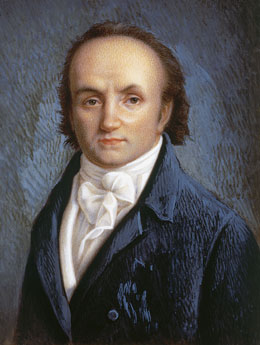
Breguet is marking the bicentenary of the Battle of Waterloo by acting as principal private sponsor for the restoration work on the Hougoumont farm.
One of the last genuine witnesses to the battle, Hougoumont is intended to stand as a symbol of peace and stability in Europe. The inauguration of this important piece of history following restoration work and repurposing as a museum, was scheduled for 17 June 2015, in the presence of Marc A. Hayek, President & CEO of Breguet, members of European royalty - including Prince Charles, the Duke of Wellington, Prince Blücher von Wahlstatt and Prince Charles Bonaparte - leading politicians and the international press.
The Duke of Wellington considered the occupation of Hougoumont farm as decisive to the outcome of the Battle of Waterloo (18 June 1815), which was to end over twenty years of war in Europe. This building has particular significance for Breguet due to the establishment’s links to the battle’s protagonists. Loyal customers of Breguet could be found in both Napoleon’s and the Allies’ camps. The most famous among them are of course the Emperor Napoleon and the Duke of Wellington!
But the Battle of Waterloo was also the occasion of honours and recognition being bestowed upon A.-L. Breguet. In Louis XVIII, King of France, he had a sincere and active admirer. On 27 October 1815, only a few months after Waterloo, the master was appointed watchmaker to the Royal Navy. He had then been at the head of his watch company for forty years. The company was established in Paris in 1775 and obtained its first successes at the French court during the reign of Louis XVI and Marie-Antoinette. In the troubled years of the French Revolution, Breguet returned to Switzerland, his native country. During the period of the Empire, nearly all the members of the imperial family were clients. Breguet also exported his creations, which were highly sought after in England, Spain and Russia. The politics of Napoleon, the Continental Blockade and the war with Russia prevented him from developing his commercial talents, but after the defeat of Napoleon, the protection of Louis XVIII and the birth of a new Europe, following the Congress of Vienna, helped his company and enabled him to thrive.
With the patronage of project Hougoumont, Breguet underlines its links with its own history as well as with the history of Europe. This partnership is in keeping with Breguet’s overall policy, initiated in 2005, of financial support for the preservation of cultural heritage.
June 11, 2015


 News
News 